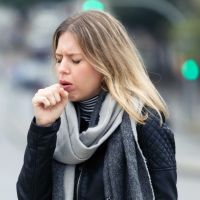Researchers at UVA Health, led by Dr. Steven L. Zeichner, have discovered a potential explanation for some of the mysteries surrounding COVID-19 and long COVID. They found that COVID-19 can induce the production of antibodies, termed "abzymes," that mimic enzymes regulating essential body functions like blood pressure, blood clotting, and inflammation. These abzymes could be responsible for some of the complex symptoms seen in COVID-19 and long COVID.
COVID-19's Varied Clinical Manifestations and Post-Infection Complications
The primary pathology of COVID-19 primarily affects the lungs but can also involve other organs like the gastrointestinal system and lead to symptoms like diarrhoea, loss of smell, and taste. The disease is characterised by high inflammation, clotting abnormalities, and blood pressure instability. Some complications may emerge after a week or more post-infection, suggesting secondary processes at play. Reports indicate that certain inflammatory reactions in COVID-19 may be linked to antibodies against the SARS-CoV-2 spike protein, leading to conditions like multi-system inflammatory syndrome in children (MIS-C). Additionally, some patients experience post-acute sequelae of SARS-CoV-2 infection (PASC or "long COVID"), which includes persistent symptoms like inflammation, coagulation issues, and neurophysiological dysregulation. The exact causes of PASC are still unclear.
Abzymes and ACE2-Like Enzymatic Activity in COVID-19 Patients
The study explored the hypothesis that some COVID-19 patients may produce antibodies with enzymatic activity, referred to as abzymes, targeting proteolytic regulatory cascades. These antibodies were thought to have a negative molecular image of the SARS-CoV-2 spike protein receptor-binding domain (RBD) that is similar enough to angiotensin-converting enzyme 2 (ACE2) to exhibit ACE2-like catalytic activity. The researchers studied plasma samples from hospitalized COVID-19 patients and found that some samples could cleave a synthetic ACE2 peptide substrate, despite being collected with an anticoagulant that typically inhibits ACE2 activity.
ACE2 Cleavage Activity and Association with Anti-RBD Antibodies
Further experiments showed that this cleavage activity was associated with immunoglobulins and disappeared when these antibodies were removed from the plasma samples. The findings suggest that some COVID-19 patients develop antibodies with abzyme-like activity capable of affecting ACE2 substrate cleavage. These abzymes might contribute to the unclear pathogenesis of certain COVID-19 features, such as autonomic dysregulation, coagulopathies, and inflammation. This study provides what is believed to be the first description of ACE2-like enzymatic activity associated with immunoglobulins in COVID-19 patients, potentially shedding light on the disease's complex clinical manifestations. Angiotensin-converting enzyme 2 (ACE2) serves as the main cellular receptor for SARS-CoV-2, initiating infection when bound by the virus's spike protein. ACE2 plays a role in regulating blood pressure by converting angiotensin II to angiotensin 1–7, which has vasodilatory effects. Some COVID-19 patients and those with PASC have shown signs of blood pressure abnormalities without a clear cause. The kallikrein-kinin system, which regulates inflammation, may also be affected in severe COVID-19 cases. Abnormalities in this system could contribute to the disease's severity. The study also explored the concept of catalytic antibodies, known as abzymes, which have enzymatic activity. Although initially believed to have potential biotechnological applications, their activity was found to be lower than conventional enzymes. However, high concentrations of abzymes in the bloodstream could still have clinically significant effects. Patients with autoimmune diseases produce abzymes that target various substances, suggesting a potential role for abzymes in disease pathogenesis. Given that the SARS-CoV-2 spike protein binds to ACE2, the researchers hypothesized that some COVID-19 patients might produce antibodies against the spike protein with catalytic activity resembling ACE2. This could potentially contribute to the disease's pathogenesis. The study examined plasma samples from COVID-19 patients and found evidence of ACE2 substrate cleavage activity, supporting the hypothesis that some patients develop antibodies with ACE2-like enzymatic activity.
Implications for COVID-19 Pathogenesis
The study found that some COVID-19 patients exhibit plasma activity capable of cleaving a substrate for ACE2, potentially due to the presence of antibodies with abzyme activity. This activity differed from native ACE2 in its cation requirements and was associated with immunoglobulin presence. The study also found a correlation between this ACE2 substrate cleavage activity and antibodies directed against the spike protein's receptor-binding domain (RBD), suggesting that some anti-RBD antibodies may possess ACE2-like cleavage activity. The study's strengths include its prospective design, standardised methods, and focus on patients early in their disease course. However, it has limitations, such as a small sample size, lack of matched controls, and inability to assess patients at different disease stages or correlate findings with clinical features. The study is associational and cannot definitively prove that the observed abzyme activity is clinically significant or directly related to COVID-19 symptoms.
Despite these limitations, the study provides valuable insights into potential mechanisms underlying certain COVID-19 clinical features. The presence of abzymes in COVID-19 patients could have implications for understanding disease pathogenesis and developing new therapeutic interventions. It also raises questions about the possible role of abzymes in vaccine-related adverse effects, given that some COVID-19 vaccines target the spike protein's RBD. Further research is needed to fully understand the role and significance of abzymes in COVID-19 and explore their potential therapeutic implications.
Source: mBio
Image Credit: iStock
























